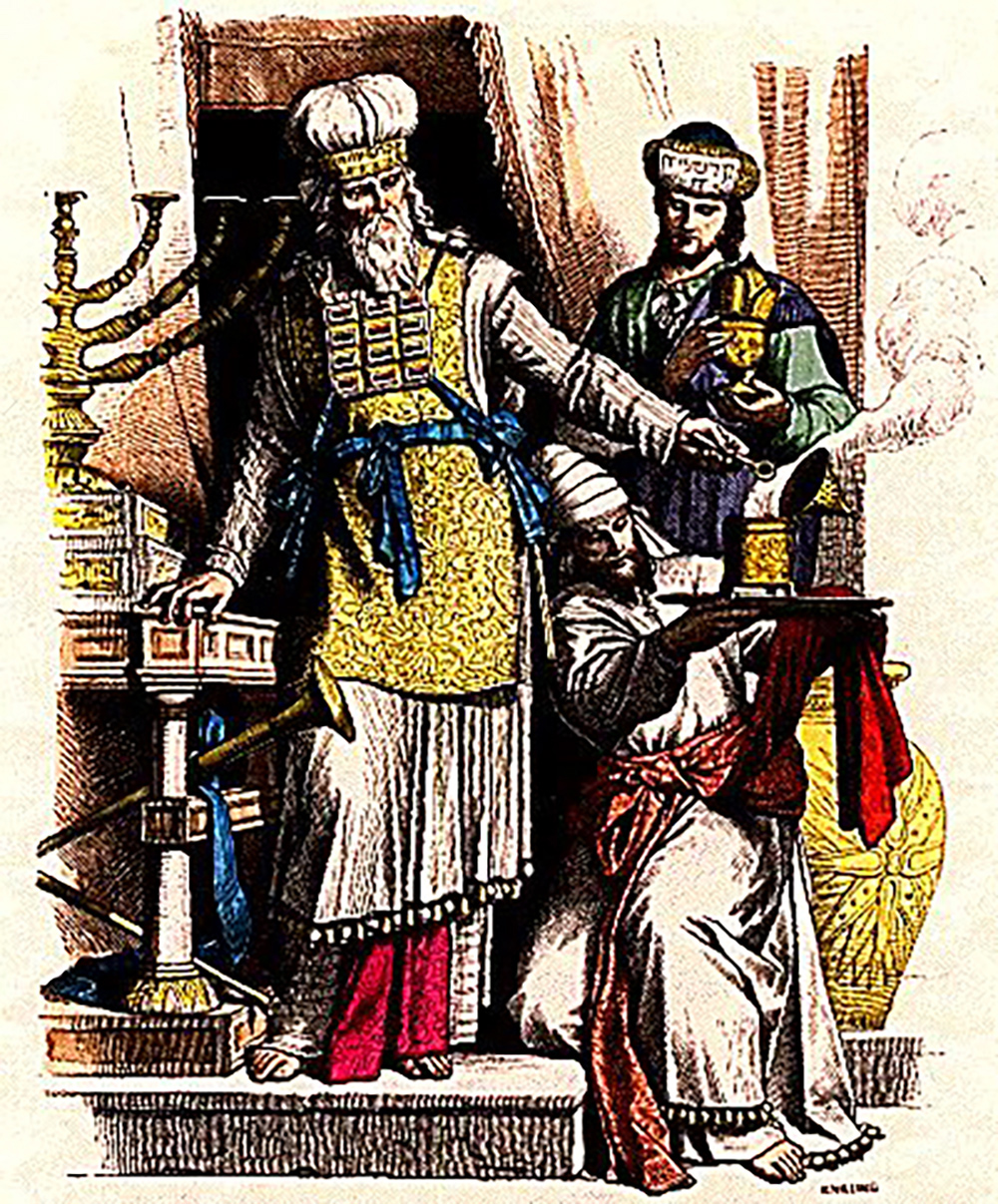By: Rabbi Osher Jungreis
In this week`s parsha the Torah teaches us that after the Kohen cleaned the ashes of the offerings from the altar, he had to change his priestly garments before he continued his service in the Temple. There is a profound lesson in derech eretz — respect and proper conduct to be learned from this. The Kohen is not to wear the same clothing when he removes the ashes as he does when he performs his service unto G-d. We are not to serve our G-d, in the very same clothing in which we do menial chores. So, for example, women should change their clothing before lighting candles in honor of the Sabbath. But the question still remains, why would the Torah not have designated special priests for the cleansing of the altar, and others to perform the service. This way, it would have been unnecessary to change garments.
The Torah wants to impress upon us that when it comes to serving HaShem, every mitzva is sacred. Cleaning the altar is no less holy a calling than performing the service. Within this teaching is once again an important message for us, especially in this pre-Pesach season when we are called upon to thoroughly clean our homes — a task which can be very tedious. If we bear in mind however that this menial chore is also the service of G-d, then we will be invested with zeal and enthusiasm and our work will become meaningful. It is not only on erev Pesach that this teaching should sustain us, but throughout the year. There are always those who volunteer for glamorous jobs, for chairmanships that lend honor and distinction, but when it comes to the nitty-gritty menial tasks, there are all too few candidates. At such times, it is important for us to recall the Kohen who removed the ashes and remember that that too was the service of G-d — all mitzvas are equal.
Alas, we no longer have the holy Temple. We can no longer offer sacrifices, but the Midrash teaches us that if a Jew repents and comes closer to G-d, it is considered as though he ascended to Jerusalem, rebuilt the Temple and gave an offering to G-d. In the absence of the Temple, our tables are regarded as altars. This is especially important to remember as we sit around our Seder tables which symbolize hospitality, tzedukah, and commitment. In these embattled times, when our brethren in Eretz Yisroel are in the throes of danger, our Seder tables must take on an added dimension, and we must fervently offer our prayers and demonstrate our dedication to our people and to our G-d.
The Power of Love
At the end of this week`s parsha there is a puzzling passage, “This is the thing that HaShem commanded to be done..” (Leviticus, 8:5), but the Torah does not specify what “the thing” might be. In order to gain illumination, we turn to the previous verse wherein G-d instructed Moshe to gather the entire assembly of the Jewish people “to the entrance to the Tent of Meeting”–and herein lies the explanation which in and of itself is paradoxical. Although the area at the entrance was very small and could not contain so many people, nevertheless, miraculously, there was ample room for everyone. Through this phenomenon, the Torah teaches us a profound lesson that speaks for all time: When true love prevails among people, no room, no place is too small. On the other hand, when contention and animosity fill hearts, then no space is big enough. The most majestic palace cannot accommodate those who are not at peace with one another, thus the meaning of the passage becomes clear–”This is the thing that HaShem commanded to do”: to reach out with love, kindness and understanding, and if we do that, then even the smallest, most limited space will miraculously expand. That is the power of love.
SHABBOS HAGADOL
The holiday of Pesach is a celebration of our nationhood–and our strength as a people is contingent upon our unity and our willingness to band together as one.
Shabbos HaGadol is called “The Great Sabbath.” Some of the reasons for this are: 1) There is an ancient custom that on this Sabbath the Rabbi delivers a lengthy sermon dealing with the intricate laws of Pesach. 2) The Haftorah for this Shabbos states: “Behold, I will send Elijah the Prophet to you before that great and awesome day” 3) It was on this Sabbath that our forefathers in Egypt set aside the Pascal lamb for the first Pesach. Since the lamb was the deity of the Egyptians, it was miraculous that the Egyptians did not attack the Jews (who had merited G-d`s protection through their great courage and loyalty in fulfilling His command). 4) Finally, on this Sabbath, it is a minhag (custom) to read part of the Haggadah.





